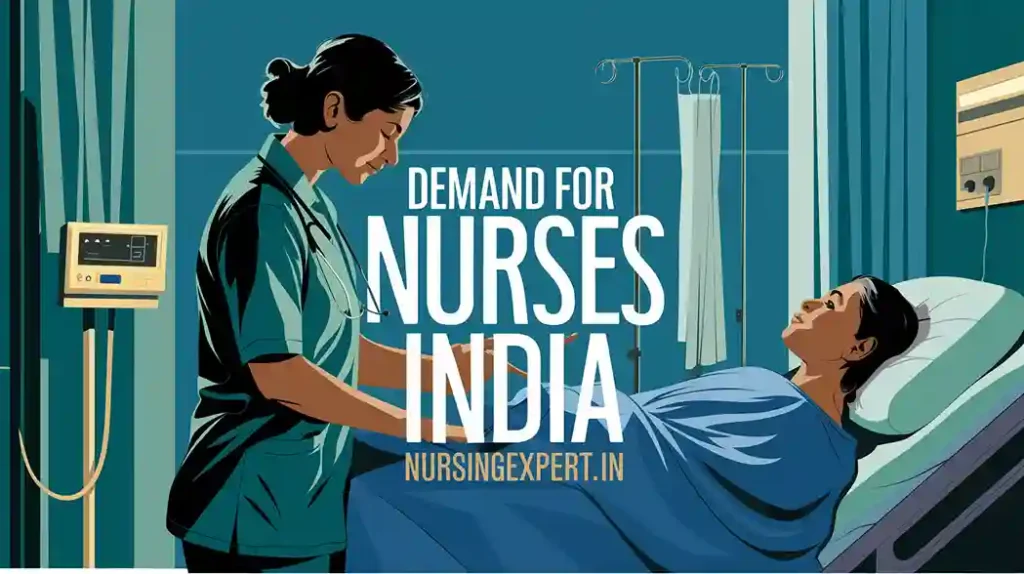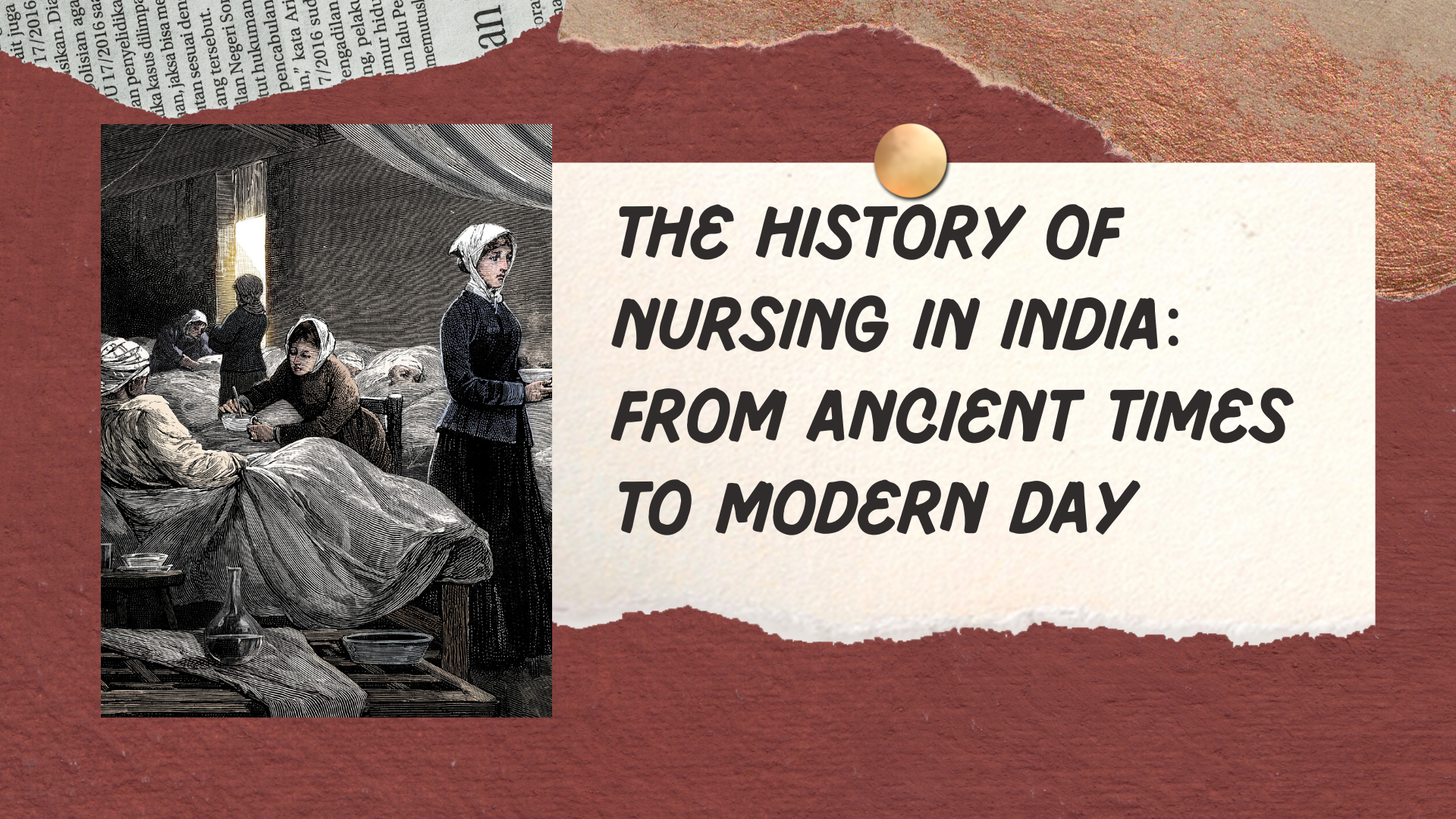India’s healthcare system stands at a critical juncture. With a rapidly growing population and increasingly complex medical needs, the country is facing an unprecedented nursing shortage. This shortage not only affects patient outcomes but also places immense pressure on the entire healthcare infrastructure. As a trusted resource on nursing matters, NursingExpert.in is here to peel back the layers on this crisis and spotlight the enormous opportunities that lie within the nursing profession.
Thank you for reading this post, don't forget to subscribe!


The Looming Crisis: A Nation on Edge
Recent data suggest that India is grappling with a severe shortage of nurses—a gap that grows wider with each passing year. Hospitals in both urban and rural areas struggle to provide adequate care due to understaffing, resulting in increased burnout and diminished patient care quality. Misconceptions that nursing is a “lesser” profession must be dispelled immediately. Nursing is not only a calling but a cornerstone of effective healthcare delivery, where every nurse’s expertise is critical to saving lives.
For instance, a study from a leading healthcare think tank recently highlighted that the nurse-to-patient ratio in many Indian hospitals falls significantly short of international standards, intensifying the strain on both healthcare professionals and patients alike.
Root Causes of the Nursing Shortage
1. Quality vs. Quantity of Training
While India produces a large number of nursing graduates annually, concerns persist regarding the quality of nursing education. Many training institutes face challenges ranging from outdated curricula to insufficient practical exposure. This mismatch between quantity and quality means that even when graduates enter the workforce, the level of competency required for today’s dynamic healthcare environment is often lacking.
2. Brain Drain: The Exodus of Talent
A significant number of well-trained Indian nurses are choosing to work abroad. The brain drain phenomenon is fueled by better pay, superior working conditions, and greater opportunities for professional growth overseas. These pull factors, combined with domestic challenges, have created a scenario where the country loses critical expertise at a time when it is needed most.
3. Challenging Working Conditions & Compensation
The reality on the ground is harsh. Many nurses work long hours under strenuous conditions, often receiving compensation that does not reflect their immense responsibilities. Disparities in salary and benefits compared to international standards further exacerbate morale issues, leading many to leave the profession or seek employment abroad.
4. Social Stigma & Gender Bias
Nursing in India has long been subjected to social stigmas and gender biases. Despite the fact that nursing is predominantly a female profession, societal prejudices often undermine its importance and discourage many bright, potential candidates from pursuing a nursing career.
5. Lack of Career Progression
Opportunities for advancement within the nursing field remain limited. With few avenues for specialization or leadership roles, many nurses find themselves stuck in positions that do not fully leverage their skills, contributing to a decline in job satisfaction and professional retention.
6. The Technological Paradox
Modern technology, while transforming healthcare delivery, has also raised the bar for the kind of specialized care required. As healthcare becomes more technologically driven, the demand for nurses with advanced training and expertise increases—a need that the current system struggles to meet.

Untapped Goldmine: Opportunities in Nursing
Despite these challenges, the nursing profession in India is ripe with untapped potential.
Diverse Career Paths
Nursing today extends far beyond traditional bedside care. Specializations in critical care, oncology, pediatrics, public health, and more now offer diverse and lucrative career paths. The increasing complexity of healthcare demands professionals who can adapt to these specialized roles, making nursing careers in India a promising field.
Entrepreneurial Opportunities
The rise of nurse-led clinics and healthcare startups illustrates that nurses are not just caregivers but also innovators. These entrepreneurial ventures are redefining the role of nurses and paving the way for sustainable models of community health care.
Impact & Fulfillment
For many, nursing is more than a job—it’s a calling. Countless testimonials from frontline nurses reveal stories of compassion, resilience, and profound impact. One seasoned nurse recently shared, “Every day, I see how my care can change lives. Despite the challenges, the fulfillment I derive from my work is unparalleled.” Such real-life accounts underscore the importance of nurses in India and serve as a beacon of hope for aspiring professionals.
Global Demand for Indian Nurses
Indian nurses have earned a stellar reputation worldwide for their clinical skills and compassionate care. This global demand not only opens doors to international career opportunities but also serves as a testament to the high standards of nursing education and practice in India. Enhancing the domestic work environment could help retain more of this talent within the country.
Solutions & The Way Forward
Addressing the nursing shortage requires a multipronged approach:
Investing in Education
- Increased Funding: Allocate more resources to modernize nursing education.
- Scholarships & Faculty Development: Expand financial aid and invest in teacher training to ensure that the next generation of nurses is well-equipped.
- Innovative Training Models: Introduce simulation labs and technology-driven learning platforms to improve practical skills.
Improving Working Conditions
- Better Pay & Benefits: Realign compensation structures to match the critical role nurses play.
- Work-Life Balance: Implement policies that reduce burnout, such as regulated working hours and enhanced support systems.
Promoting Professional Development
- Continuing Education: Encourage lifelong learning through regular workshops, certifications, and advanced degree programs.
- Career Advancement: Create clear pathways for nurses to move into specialized roles and leadership positions.
Changing Perceptions & Policy Reforms
- Public Awareness Campaigns: Launch initiatives to reshape societal views on nursing, emphasizing its complexity and essential nature.
- Government Initiatives: Collaborate with policymakers to implement reforms that protect and empower the nursing workforce.
For more detailed statistics and expert opinions, refer to Ministry of Health and Family Welfare and National Health Portal.
Dr. Asha Menon, a respected leader in nursing education, states, “By investing in our nurses, we are investing in the future of healthcare. It’s time for policy makers to recognize nursing not just as a profession, but as a vital pillar of our society.”
Empowering the Nursing Future
The current crisis presents not only challenges but also a unique opportunity to transform the nursing profession in India. Aspiring nurses are encouraged to pursue their passion with confidence, knowing that they are entering a field with vast opportunities and a global demand for skilled care. Meanwhile, policymakers and healthcare leaders must act decisively—by investing in education, improving working conditions, and fostering an environment that values professional growth—to secure a sustainable future for nursing in India.
Join us at NursingExpert.in as we champion the cause of nursing excellence and work towards a future where every nurse is empowered to make a difference.
Conclusion
India’s nursing crisis is a wake-up call for the entire nation. It demands urgent attention and collaborative action from all stakeholders—nurses, educators, healthcare leaders, and policymakers alike. By addressing the root causes and leveraging the immense opportunities within the profession, we can turn this crisis into a catalyst for lasting, positive change. The time to act is now, ensuring that the backbone of our healthcare system remains robust and resilient for generations to come.


